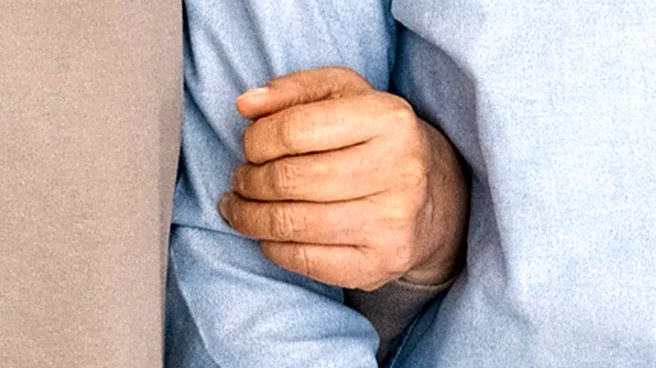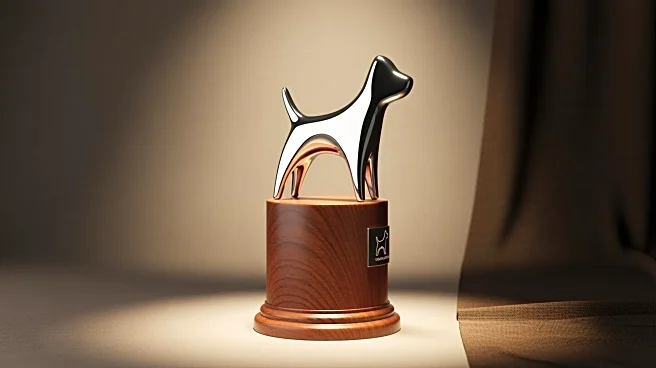What's Happening?
A recent survey conducted among over 1,200 heterosexual U.S. adults has highlighted significant gender differences in preferences for traits in romantic partners. The study, led by Bill von Hippel at Research with Impact, asked participants to choose
between having certain traits themselves or preferring their partners to possess them. The traits examined included wealth, beauty, ambition, humor, intelligence, and kindness. Results showed that men are more willing to sacrifice their own attractiveness for a highly attractive partner, whereas women prefer to be attractive themselves. Both genders showed similar preferences for kindness in partners. The survey forced participants to express a preference, revealing stark differences particularly in the importance of beauty and humor.
Why It's Important?
The findings of this survey provide insight into the underlying preferences that shape romantic relationships in the U.S., potentially influenced by evolutionary factors. Understanding these preferences can inform discussions on gender roles and expectations in relationships. The study suggests that women prioritize attractiveness and intelligence for themselves while seeking wealth, humor, and ambition in partners. Conversely, men prioritize wealth and prefer partners who are more attractive. These preferences may reflect societal norms and pressures, impacting how individuals approach dating and relationships. The study's forced-choice methodology may offer a more accurate representation of these preferences, highlighting the importance of considering both short-term and long-term relationship goals.
What's Next?
Further research could explore how these preferences impact relationship dynamics and satisfaction over time. Additionally, examining the applicability of these findings to non-heterosexual relationships and diverse cultural contexts could provide a broader understanding of partner preferences. Researchers may also investigate how societal changes, such as shifts in gender roles and economic conditions, influence these preferences. The study's insights could contribute to developing relationship counseling and educational programs that address these gender-specific preferences and expectations.
Beyond the Headlines
The study's findings may have implications for understanding the role of evolutionary psychology in modern relationships. The emphasis on certain traits could reflect deep-seated biological and social factors that continue to influence partner selection. This research may also prompt discussions on the ethical considerations of using forced-choice methodologies in psychological studies, as well as the potential biases introduced by self-reported data. Exploring these dimensions could lead to a more nuanced understanding of human mating strategies and their impact on societal norms.














